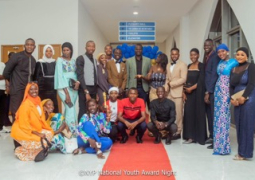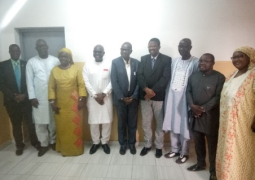According to the information sent to The Point including an excerpt of the interview and audio recording revealed not only its interest and attention about The Gambia, but also offered an incredible segment and exceptional model that is worthy of emulation.
The article revealed that “the people of The Gambia work in agriculture, fishing and tourism…and was colonized by Britain for more than 400 years”. It was “not subject to Ottoman rule”.
Both Ambassador Jaiteh and Senegalese Ambassador-at-Large, Adviser to the Presidency and former Parliamentarian Ahmed Tejan, took part in the conversation that was conducted.
The paper also outlined that “Senegal and Gambia have the same tribes, languages, ethnicities, religious makeup and Sufi Sunni Muslim majority. It added that “the two countries are famous for the abundance of memorizers of the Book of God Almighty, as there are nearly a quarter of a million memorizers of the Qur’an in Senegal”.
It also disclosed that “religious schools are spread everywhere with diversity that enriches Senegalese and Gambian society, and the Sufi movement leaves a clear religious impact on the culture of these societies”.
Consequently, the paper stressed that “after the independence of Senegal and Gambia, these two countries, under the supervision of the French and English colonists, went to form constitutions for the modern state…and because the majority of their peoples were Muslims, the Sufi movements contributed to the acceptance of the two peoples to the modern state…and they did not find in the model of this state any danger to the structure and identity of the state”.
Ambassador Jaiteh, who used the opportunity to highlight the tolerance, acceptance and peaceful coexistence and cohabitation between different individuals, also strongly emphasised the existence and enjoyment of the freedoms of faith and religion in the country over the years.
Thus, the paper noted that “instead religion has become part of this modern civil system…the State gave them a hand in spreading religiosity and building people's conscience with freedom for all groups of society to choose what suits them”.
It further suggested that the country is a source of emulation as “this model of reconciliation between the religious groups and the modern state may be what we desperately need in the Arab world, as we saw how the opportunity of the Arab Spring was wasted and tyranny regained its grip on the Arab region as a result of the zero-sum conflicts that occurred between political Islam and liberal forces.”
The paper also underscored “the model of Senegal and Gambia in an attempt to recover from the long periods of colonialism and rebuild them politically according to the model of the modern state reconciled with religion, so that religion is a lever for the unity of the country and the cohesion of society and the strengthening of the institution of the modern state and not eroding or conflicting with it…”




